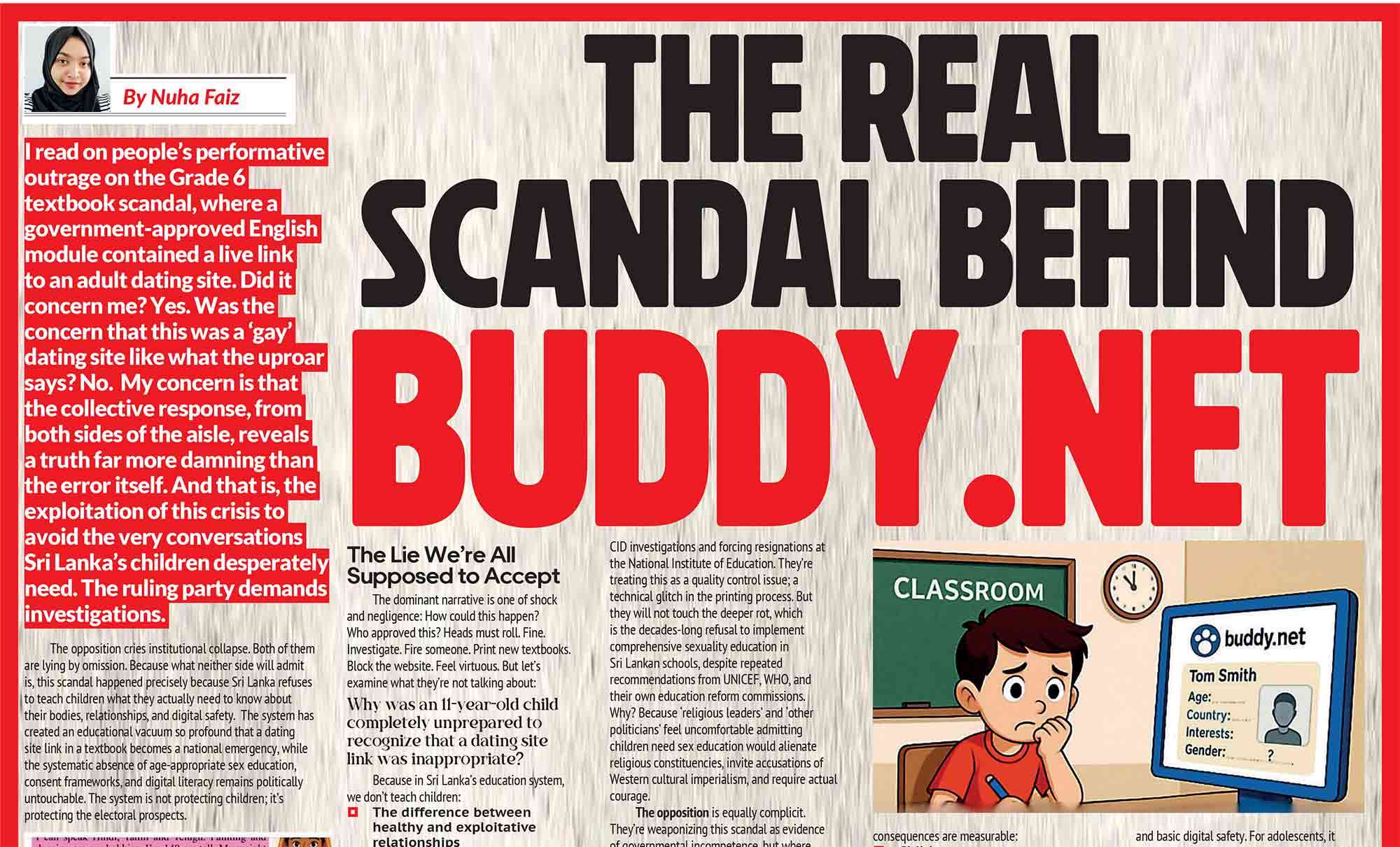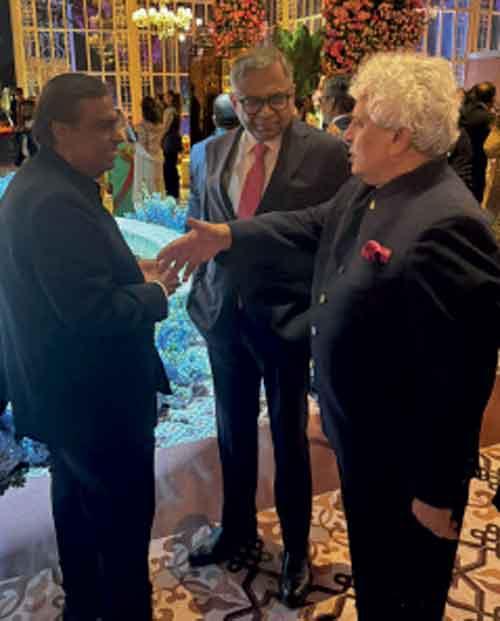
Mukesh Ambani and Suhel
Few figures in India’s public life straddle as many worlds with as much flair and fearlessness as Suhel Seth. A man of many avatars; advertising maverick, brand consultant, theatre enthusiast, author, columnist, and provocateur, Suhel has spent over four decades at the intersection of business, media, and society. Known for his quick wit, unapologetic candour, and mastery of language, he has advised some of India’s most powerful corporations while remaining a sharp social commentator. In conversation, he is as forthright as ever, reflective yet irreverent, philosophical yet playful. From his formative years in Kolkata’s intellectual milieu to his enduring faith in authenticity, curiosity, and dissent, Suhel’s story is as much about evolution as it is about conviction. What follows is an unfiltered exchange in London with a man who continues to shape and shake up India’s cultural and corporate conversations.
Q You’ve often described yourself as a perpetual student of life; tell us about the early lessons that shaped Suhel Seth, from the classroom to the boardroom.
I believe we never stop learning. Education might culminate in degrees, but knowledge is infinite. The thirst for it should never cease. I’ve always felt that the anchor of any human being lies in their ability to continuously embellish their knowledge, through reading, observation, and, most importantly, listening. Those were the early lessons that shaped me. I was deeply involved in theatre, elocution, and debating. I made sure I participated in everything beyond the classroom. We were taught to dissent without being disagreeable, a value that has stayed with me through boardrooms and beyond. You don’t have to agree to be liked, nor should you crave perpetual approval. What matters is clarity: knowing what you feel, feeling what is right, and saying what you feel.
Q You’ve built a career at the crossroads of business, media, and society. Was that by design or serendipity?
Neither actually; it was by accident. I never charted a path that said, “I’ll be in theatre, then in the corporate world.” I’ve always believed one must do whatever one can, to the best of one’s ability. My life has been guided by that principle. So, if I were to sum it up, I’d say I’m a fine accident, a series of happy ones, thankfully.

Q You’ve advised some of India’s most powerful corporations. What’s the most valuable brand lesson you’ve learned, and perhaps one you had to unlearn?
The biggest lesson is that you can never stop learning, especially from the consumer. The consumer is always right. You can’t predict behaviour, but you can glean insight. The lesson I had to unlearn was that experience is enough to future-proof you. It isn’t. The world changes far too fast. The moment you think you know it all, you’re finished.
Q How do you balance being both the strategist behind the scenes and a public commentator unafraid to stir the pot?
Both roles demand honesty and purpose. I don’t see a conflict. People often ask, “If you criticise the government, won’t that upset your clients?” It never has, and I hope it never will. If you speak without malice or agenda, and with logic, people respect that.
Q Many see you as India’s original provocateur in public discourse. Do you ever feel misunderstood, or do you enjoy that friction?
I love the debate. I love friction. Calling people out, without malice, keeps conversations honest. Of course, some people will be upset, but that’s fine. The only person I need to be popular with is my wife. As long as she’s fine, I’m fine.
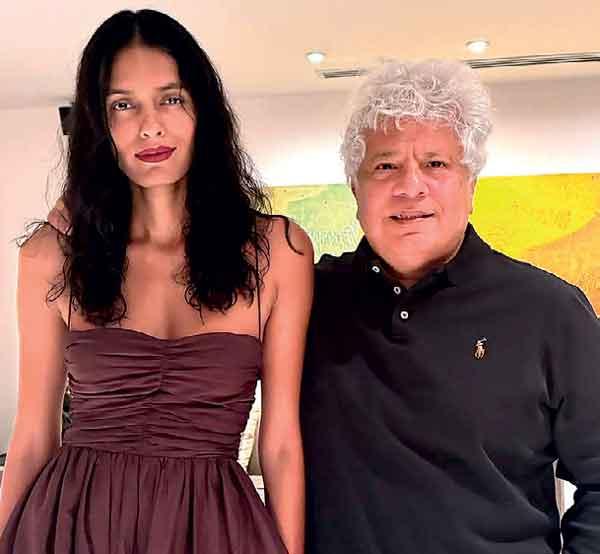
Q You’ve often spoken about authenticity in branding. In an age of digital facades and influencer culture, what does authenticity mean to you today?
Authenticity is about the brand, not the endorser, not the influencer. Today we’ve become obsessed with influencers who, frankly, often know very little. When a brand relies on an influencer to survive, it’s a sign of lazy marketing. In such cases, the brand manager and marketing director both deserve to be fired.
Q If you had to describe the “Suhel Seth brand” in three words, what would they be, and would your wife Lakshmi Menon agree?
“Live. Honestly. Always.” That’s my mantra. Years ago, Ratan Tata was asked how he defined success. His answer was simple: “A good night’s sleep.” I sleep well, sometimes even an afternoon siesta. That’s success enough.
Q Let’s rewind to your early days. What was the turning point that set you on this path from literature and theatre into advertising and consultancy?
I grew up in Kolkata, the cradle of culture. There, it didn’t matter what car you drove or how much you owned. What mattered was knowledge, how much you could share intellectually. I was fortunate to work with great directors like Mrinal Sen through theatre. Then one day, while playing cricket outside my building, someone asked if I’d consider advertising. I had a Master’s in English Literature, no MBA, but I joined Ogilvy. That’s how it all began.
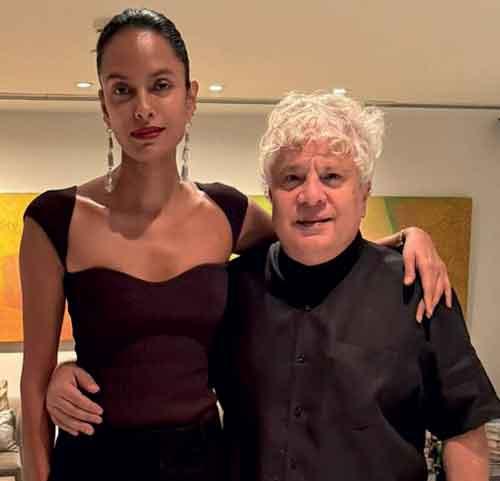
Lakshmi and Suhel
Q You’ve worked with titans across industries, from Tatas to ITC. Who has influenced you most in your professional journey, and why?
Without a doubt, Ratan Tata, for his vision, empathy, and worldview. A close second would be Mukesh Ambani, for the scale of his thinking. Both taught me that ideas mean nothing without execution. The potency of an idea lies in its implementation.
Q What’s your philosophy when it comes to leadership: persuasion, precision, or provocation?
You do what’s right. You don’t chase followers or popularity. Leadership can’t be reduced to labels. If you’re a good human being who knows your job and says it as it is, you’ll do well.
Q Your marriage to Lakshmi Menon caught public attention, two strong personalities, two creative worlds. How do you complement each other?
It caught attention partly because of the age difference, which I couldn’t care less about. I first met Lakshmi when she was speaking at Tina Brown’s Women of the World Summit, an event I thought I’d be speaking at until I was told it was for women only! That’s how it began.
Lakshmi brings calmness and creativity. She’s bohemian, thoughtful, and a wonderful mother to our daughter, Gayatri. I can fly off the handle; she never does. She grounds me.
Q What’s the most surprising thing people don’t know about Lakshmi, and what has she taught you about life and self-expression?
Her calmness hides a remarkable depth of thought. She has an instinctive understanding of people and a fearless individuality. She’s taught me the beauty of restraint, and the strength in staying unfazed by noise.
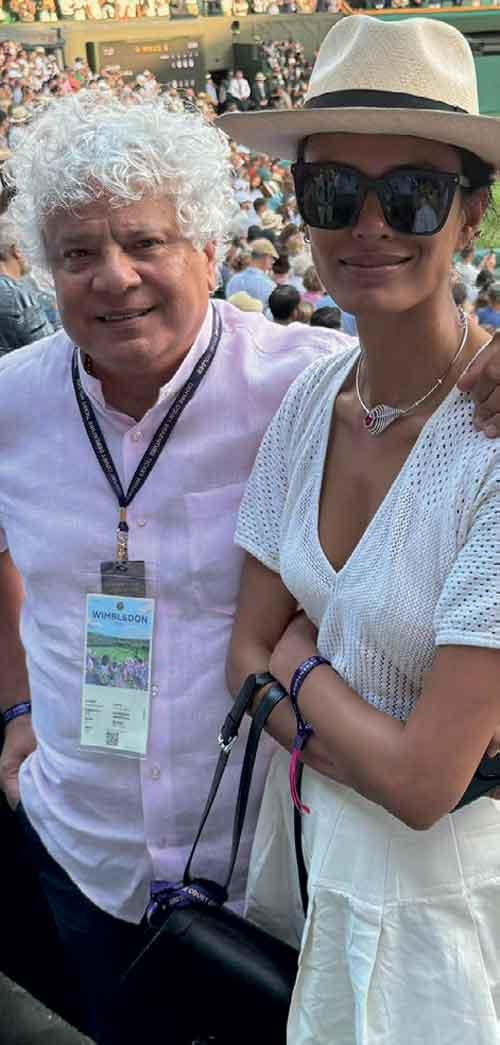
Q You’ve been a fixture of India’s high-society circuit, but also deeply engaged with literature and theatre. How do you reconcile those worlds?
I don’t see a “high-society circuit.” There are people who are powerful or wealthy, and that’s fine, but in my own life, I am too. What interests me is intellect, not status. In my book ‘Get to the Top,’ I wrote: if you want to be seen as interesting, you must first be interested, in everything from theatre and opera to literature. That’s what Kolkata taught me.
Q You’ve had your share of public criticism. How has your view of reputation and resilience evolved?
Criticism is part of the game. You need a thick skin. As long as you haven’t harmed anyone willfully, you shouldn’t care. When a caravan moves, street dogs bark, but the caravan doesn’t stop. If your purpose is clear and logic sound, let people say what they want.
Q How do you unwind? Is there a softer, quieter Suhel that the public never sees?
Absolutely. I unwind with plays, books, opera, and the occasional Netflix binge. I’m very comfortable in my own company. I don’t need a crowd to feel relevant or desired. Solitude, for me, is strength.
Q If you were mentoring a 25-year-old Suhel today, what advice would you give him?
I’d tell him to follow Suhel. Trust your instincts, not the noise.
Q You’ve built brands for others. What legacy would you like to build for yourself in the next ten years?
I’m a Hindu, and in our tradition, after the 13th day of mourning, no one remembers you. So, this obsession with legacy amuses me. Shakespeare said it best in Julius Caesar: “The good is oft interred with the bones; the evil lives long after.” I don’t care to be remembered. I won’t be here anyway, and society doesn’t define me.

Q India is changing rapidly, politically, economically, socially. What excites you most about this new India, and what worries you?
What excites me is its confidence. We’ve moved from being a nation of shopkeepers to a nation of entrepreneurs and unicorns. We’re finally translating our civilisational depth into economic might.
What worries me is anger. People are perpetually angry; at traffic, at service delays, at everything. Anger is self-destructive. We need to rediscover civility and humour in our discourse.
Q Do you think the art of civil debate, something you’ve long championed, is dying, or simply evolving?
It’s dying, sadly. Debating today is less about ideas and more about outrage. I’ve always relied on satire and sarcasm to defuse tension. People take themselves too seriously now, and that kills conversation.
Q Finally, when history writes the chapter on Suhel Seth, how would you like to be remembered?
I hope it says, “He once gave an interview to The Sun (Daily Mirror) in Sri Lanka.” That’s enough immortality for me.




